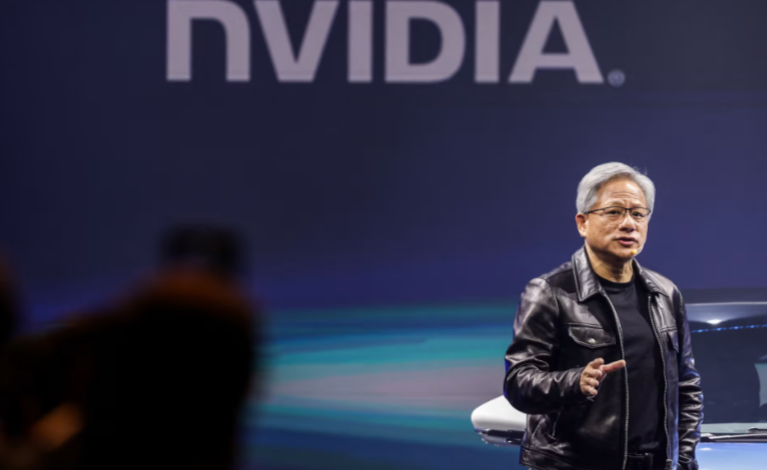Nvidia has established itself as a dominant player in the artificial intelligence (AI) market, capitalizing on the growing demand for advanced computing solutions.
The 31-year-old company has gained significant attention as one of the hottest stocks in the AI sector, largely due to the recent surge in interest and investment in AI technologies. This growth has highlighted the unexpected capabilities of its core product, the graphics processing units (GPUs), initially designed for rendering complex graphics in video games.
Nvidia’s GPUs have proven to be well-suited for AI model training, leading tech giants to invest billions in AI research and development. The company has adapted its gaming-focused chips to cater to the needs of AI applications, positioning itself at the forefront of the AI revolution. A significant development in this context is Nvidia’s new Blackwell processors, which are expected to drive substantial profit growth in the coming months. Following a positive update on Blackwell chip production, Nvidia’s stock has seen a rise of around 24% in the past month, making it the second-most valuable company in the market, surpassing Microsoft.
Nvidia currently holds a commanding share of the market for AI chips and processing systems and is planning to increase the production of its new Blackwell architecture in the upcoming months. Despite some earlier design delays, Nvidia has indicated that it anticipates a revenue of approximately $32.5 billion for the current quarter, demonstrating resilience amid challenges in shipping the new Blackwell processors.
According to Nvidia, improvements in the production yield of the Blackwell chips have been made, and ramp-up production is scheduled to start in the fourth quarter and continue into fiscal 2026. Nvidia’s chief financial officer, Colette Kress, stated that Blackwell is projected to generate several billion dollars in revenue for the company in the fiscal fourth quarter, which concludes in January.
The Blackwell architecture is expected to significantly impact Nvidia’s financial performance. Analysts from Morgan Stanley predict that Blackwell production will soon outpace that of Nvidia’s older Hopper chips, with production estimates suggesting a volume of 250,000 to 300,000 units in the fourth quarter, potentially contributing between $5 billion and $10 billion in revenue. By the first quarter of 2025, Blackwell chip volume could reach up to 800,000 units, representing a substantial increase from the fourth quarter output.
Recent developments in the broader supply chain also reflect the demand for Nvidia’s products. Super Micro Computer, which integrates Nvidia chips into its servers, reported strong sales figures. Additionally, Micron Technology, a key supplier for Nvidia, recently experienced its best quarterly revenue growth in a decade.
In light of the strong performance and high demand for Nvidia’s products, the company is viewed favorably by analysts. For instance, Cantor Fitzgerald analyst C.J. Muse noted that Nvidia is likely to outperform expectations in upcoming quarters, with revenue predictions for the January quarter reaching around $37 billion, approximately $1 billion above consensus estimates.
Despite the positive outlook, Nvidia is currently under scrutiny from the US Department of Justice regarding allegations related to its market practices. The company has expressed confidence in its competitive stance, asserting that it “wins on merit” and that customers are free to choose solutions that best meet their needs.
Market Watch, Quartz, and the Street contributed to this report.









